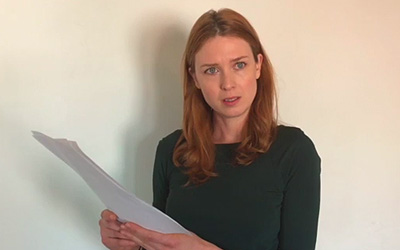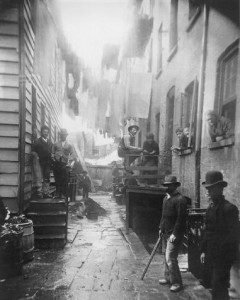Earlier this week, I reported that a troubling audition recording for the role of Marcus Isaacson in The Alienist TV series had surfaced publicly on Vimeo. The recording suggested that Marcus had taken a woman with a baby into his family’s house so that he could “fornicate” with her. As any Alienist reader would know, this is completely inconsistent with Marcus’ portrayal in the novel. Since posting this, I have been made aware that several more — equally troubling — audition recordings have surfaced, also publicly on Vimeo (see below).
I am making this public because it disturbs me significantly that the team working on this adaptation appear to be corrupting the characters from the novel. Please note that this concern does not relate to the actors whose recordings have surfaced; it relates exclusively to the script they are reading from. Although most of the recordings have now been pulled down, I strongly encourage Alienist readers to share your feelings about what is being done to your favourite characters and spread this news to any other fans of the novel that you know.
Sara Howard
One of the most offensive portrayals in the audition recordings relates to Sara Howard. In the worst scene, Sara is portrayed as silly and immature, giggling and unable to bring herself to say the word penis, before naively asking her maid about the size of one she saw earlier that day. (This from a character who, in the The Angel of Darkness, told John, “even through the sheets I could clip off both your testicles with one shot — so I advise you to unhand me.”)
In another scene that does not appear in the novel, she indicates that she could be enticed to steal coronial reports, betraying Theodore Roosevelt’s trust, if John would portray Roosevelt and herself in a more flattering light in The New York Times.
The recording has now been removed.
Transcription from the recording —
Sara: “Tessie, have you ever seen a…”
Tessie: “Yes, miss?”
Sara: “I’m trying to say the word but I’m failing…”
Tessie: “What is it, miss? Is it a man’s… manhood?”
(They both giggle.)
Tessie: “Oh dear, what sort of things have they been exposing you to downtown?”
Sara: “It has been mainly civilised, Tessie, I swear it. But I did see one today. And it occurred to me, I didn’t know whether it was a large one or a small one.”
(She tries to demonstrate size using her fingers.)
Tessie: “Was it rigid?”
Sara: “Dear God, Tessie, I didn’t touch it! Have you ever…? I’m sorry, I’m being impertinent, aren’t I?”
Tessie: “No, it’s fine, miss. I never thought I’d have this conversation with you of all people. Yes.”
Sara: “Yes! And…”
Tessie: “It felt… dangerous.”
Marcus Isaacson
As I explained above, Marcus is portrayed in the following recording as a man who would take a woman with a baby into his family’s house under the pretext of caring for his mother so that he can “fornicate” with her. He also chuckles inappropriately at the conclusion of a bastardised ‘prayer’ he sings over the mutilated bodies of the Zweig children that, according to another tape in which the prayer is read in English, translates to: “May the Lord bless us and keep us and our loved ones off the autopsy table.”
Although the recording has now been removed, much of the same dialogue can be found in a Lucius Isaacson audition that is still publicly available.
Transcription from the recording —
Marcus: “Doesn’t the Torah say desire is no more a sin than hunger or thirst?”
Lucius: “If you’d bothered to read the Torah, you’d know it says no such thing. It says there are impulses we have to control. That’s what makes men different from beasts.”
Marcus: “I guess I fall somewhere between the two, then.”
Dr. Laszlo Kreizler
No audition recording has surfaced as yet for Dr. Kreizler. However, hints about how his character has been changed can be found in lines that appear in auditions for other characters. For example, he appears uncharacteristically rude in the preceding Sara audition:
Transcription from the Sara Howard recording —
John: “Miss Sara Howard, this is Dr. Laszlo Kreizler. Dr. Kreizler, Roosevelt, and I were at Harvard together.”
(Sara holds out her hand to Dr. Kreizler.)
Sara: “It’s a pleasure to meet you, doctor. I believe I’ve read a great deal about you.”
(Kreizler does not return the handshake.)
Kreizler: “A pleasure to know you can read. We’re here to see the Commissioner.”
The Sara Howard audition also suggests that Theodore Roosevelt does not want to associate himself with Dr. Kreizler, in complete contrast to Kreizler and Roosevelt’s relationship in the novel.
John Schuyler Moore
As with Dr. Kreizler, no recording of John has surfaced as yet. However, the first scene from the Patrick Connor recording suggests that John is no longer a crime reporter in the adaptation, while the first scene from the Sara Howard recording suggests that he is a society reporter who has published a piece containing the following line: “Her [Sara’s] father was a childhood friend of Commissioner Roosevelt, although the intimacy of their working quarters calls decency into question.”
As anyone who has read the book would realise, this is the last thing John would ever write about either of his friends. In addition, Sara would have to be exceptionally young in order for Sara’s father and TR to have been childhood friends.
Patrick Connor
The recording that has appeared of Captain Connor indicates that he is being used in place of Sergeant Flynn when the body of Giorgio Santorelli has been discovered, and that he has multiple scenes in the adaptation long before he first appears in the novel. While the decision to blend Flynn and Connor may not appear problematic at first glance, I would like to remind readers that Connor’s role belongs exclusively behind the scenes for most of the novel. If he is introduced this early, what will be the big reveal two thirds of the way into the story at the meeting with J. P. Morgan?
The recording has now been removed.
Please share this news with any other Alienist readers who may be interested.





